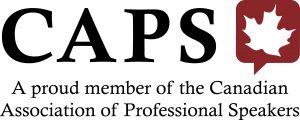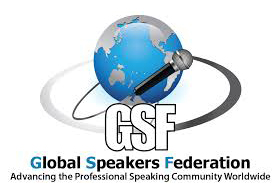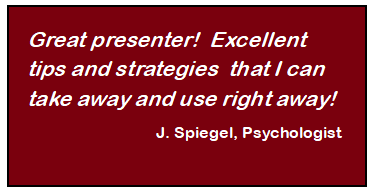
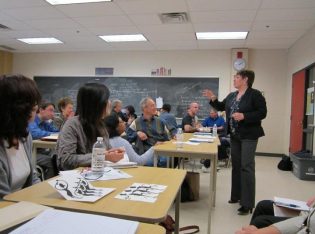
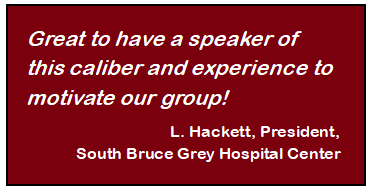
Merri Macartney, BA, B.Ed., was a teacher with the Upper Grand District School Board for nearly 20 years. Upon retirement, she used her expertise of creating curriculum to provide personal and professional development courses to such clients as the University of Guelph. Merri was also accepted as an accredited course provider for the Registered Insurance Brokers of Ontario (RIBO) for their continuing educational credits.
Merri’s client base has expanded to a multiple of industries all seeking professional development courses for their staff, whether it be for continuing education credits or to maximize work place efficiencies.
Most Popular Programs
How to Deal with Difficult People:
Many of us face dealing with difficult people in a multiple of circumstances, some personal, some professional. No matter which, it creates an unhealthy environment for us and potentially those who are likewise within out circle. This program will focus on differing personality types and the strategies to help foster better relationships with each. Knowing how others react gives an advantage to engaging. Discover the key steps to understanding personalities and get equipped with the right tools.
Conflict Resolutions that Work for All
Interpersonal conflicts are a fact of life and may arise in any situation be it professional or personal. The first step is to identify the root of the conflict and then to determine the best strategy to resolve it. This program will primarily deal with the three main types of conflict and consider best practices of five strategies to deal with them. Time is usually of the essence s delayed action tends to escalate the conflict in which case more than one strategy may be required. One key take-away for the attendees will be to identify early onset conflict. Another is to match strategies according to personality types.
9 Qualities of Successful Teams
Everyone has heard the adages: There is no ‘I’ in team. Together Everyone Achieves More. They’ve become adages because of the truths they hold. But how does this really work? What is it that makes a team a cohesive, committed and productive group? There are many facets that affect the success of a team. Discover how these 9 qualities impact the results of teamwork. This program will focus on the importance of understanding the talents each person brings and what to do with a weak leader.
Developing Your Leadership Skills
The person who has his or her name on the door might be a leader and yet might not be. People will follow those who have the characteristics of a leader. What are those? Do you have them? Would you follow you? Everyone has the ability to develop those characteristics by first acknowledging what needs to be done and then doing it. This program focuses on the strategies to escape those self imposed limitations that can hinder even the most dedicated leader and to understand how filters can affect our perceptions.
Successful Communications Series
While each of the following programs can be delivered as stand alones, why not book them all and give your people the opportunity to raise their communication skills to a higher level? They will not only thank you for it but will become more effective in impacting your bottom line!
The 3 Must Haves of Effective Communications
In today’s world of conversing, 2 or more of these “must haves” are missing. Find out why all 3 are necessary for clear, concise and complete communications. Attendees will identify the main causes of misunderstandings so they are equipped to choose the most effective communications tools to suit the occasion.
Is Your Body Language in Sync with Your Words?
Often we fail to realize that people are observing us from afar. So when we get close and engaged in conversations, our actions may change. What does our body language say about us before and after an encounter? Find out how to recognize the value of personal body language and its effect as well as how to interpret what the body language of others is saying and so that you respond according. Maybe even learn some cues about lying!
It’s Not What You Say; It’s What They Hear
Because we aren’t mind readers, we need to use communication tools. One such tool is our word selection to describe our thoughts and intentions. The problem is that not all people use words the same and they can get misinterpreted or emotionally charged due to previous experience – some not so good. Take a close look at how words can create both positive and negative effects to our conversations. Learn how phrases can impact the flow and the decision-making process.
